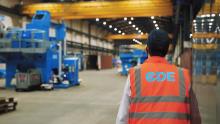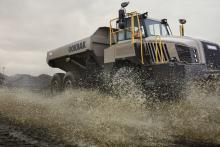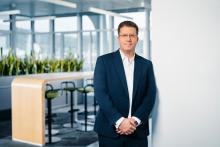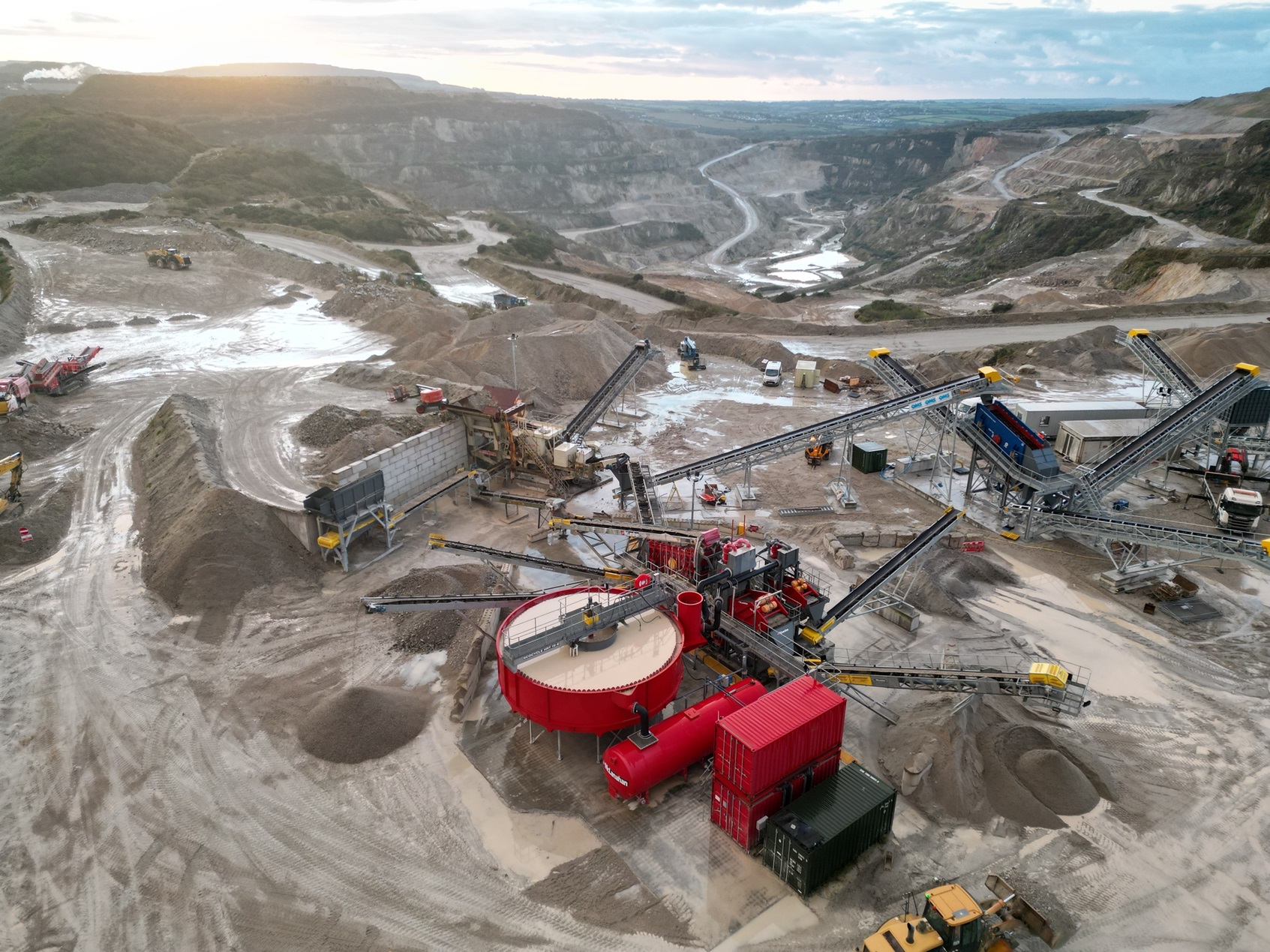
More than 60 attendees joined the quarry plant solution major and Goonvean to tour the latter’s Melbur Quarry, a granite-based secondary aggregates processing operation in St Austell, Cornwall, southwest England.
Eventgoers learned how Goonvean has significantly increased efficiency, productivity, and profitability with its state-of-the-art McLanahan setup.
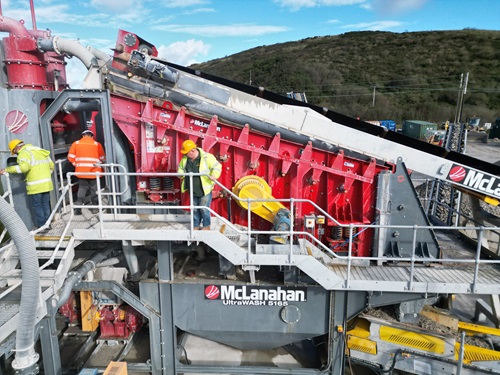
McLanahan held short education sessions throughout the day to provide attendees with key learning opportunities around construction and demolition (C&D), recycling and tailings, and water management. There was also an insightful Q&A with Matt Penny, Goonvean’s general manager, and Darren Lightfoot, Goonvean quarries manager, who was instrumental in setting up, organising and running the well-attended Open Day. The pair discussed the challenges that led to the privately owned, family-run aggregate supplier’s partnership with McLanahan and how Melbur Quarry has benefited.
Founded in 1931, Goonvean serves a wide range of markets, including construction, sports, agriculture and more, with a variety of products, such as sub-bases and fills, drainage media, graded construction aggregates, mortar and plastering sands and walling stone, to name a few. The business is committed to providing quality products to the marketplace while helping other firms positively contribute to improving environmental sustainability.
Goonvean receives its feed material—the secondary aggregates—from a supplier. After processing the aggregate, a portion is returned to the supplier and taken to the landfill or tip. Since sustainability is extremely important to Goonvean, the company wanted to utilise all its materials without returning any to the supplier or taking any to the tip.
Goonvean partnered with McLanahan to design a wash plant with water recycling capabilities that could integrate with its existing crushing plant or be fed independently. McLanahan supplied an UltraWASH Modular Wash Plant, UltraSAND Plant, and 10m EcoCycle High-Rate Thickener.
The feed material enters the UltraWASH Modular Wash Plant directly from the crushing process or through a feed hopper. The UltraWASH washes the material and separates it into three aggregate sizes and one double-washed sand product. The UltraSAND Plant washes the residue product, which is then incorporated into one of the other sand products.
The EcoCycle Thickener accepts the waste streams generated from the UltraWASH and UltraSAND Plants and separates the solids from the liquid in the slurry to recover immediately reusable process water. This process water is then reused in the wash plants to clean the aggregate material, further adding to the site’s sustainability.
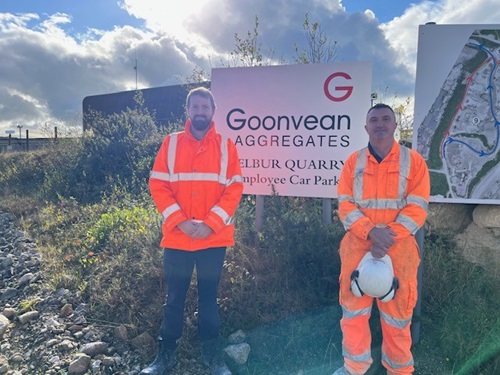
“Since we chose McLanahan as a partner, we’ve been quite productive in re-utilising and adapting the plant to our bespoke nature for the product we’re looking to produce,” said Penny. “The dialogue and feedback have been very strong and allowed us to end up with a plant that meets our requirements and needs.”
The McLanahan UltraWASH Modular Wash Plant, UltraSAND Plant and EcoCycle High-Rate Thickener are helping Goonvean Aggregates to meet its sustainability goals.
“Our goals as a business are to be more sustainable in every facet of how we operate as a business,” stressed Penny. “It’s an ongoing process, and we’re looking to reduce our carbon footprint. With the McLanahan plant on site, that’s allowing us to do so.”
In addition to helping Goonvean meet its sustainability goals, the McLanahan equipment allows the granite-based secondary aggregates supplier to utilise all its feed material and produce zero waste, eliminating the step of taking material to the tip.
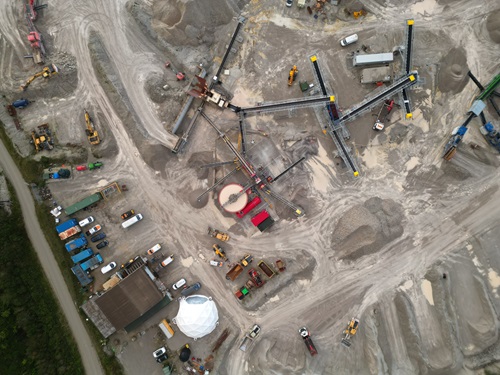
“Since we’ve had the McLanahan plant on site, our productivity and efficiencies have increased. We’re able to provide additional products to the local and national market,” explained Penny. “As part of this, it means as a company, we’re ‘zero to tip’. Every part of the product which comes into us, we’re able to process and resell as a finished product.”
Penny said being ‘zero to tip’ has huge environmental impacts on businesses. Specifically, for Goonvean, the company can process all its feed material more efficiently and productively. This has allowed Goonvean to reduce its carbon emissions and given the company an additional product offering, increasing profitability.
“It’s enhanced our product offering, our productivity, our efficiencies and our profitability,” said Penny about processing all the material with the McLanahan wash plants and Thickener.
Overall, Goonvean’s general manager is pleased with the McLanahan equipment and the support McLanahan has provided throughout the process.
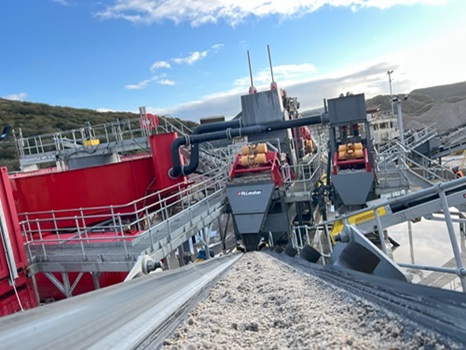
“The support from McLanahan has been excellent and allowed us to proceed and to push on with our strategic goals as a business,” concluded Penny.
David Hunter, business line director for McLanahan’s Aggregate Systems Division, based in Moy, near Dungannon, County Tyrone, Northern Ireland, was among the expert McLanahan team at the Open Day in St Austell.
“The scalpings material Goonvean received was previously a waste product. However, the company can now feed some directly into our UltraWash. In some cases, they can crush it and then feed it into the UltraWash, with only a small portion of the product becoming waste,” explained Hunter.
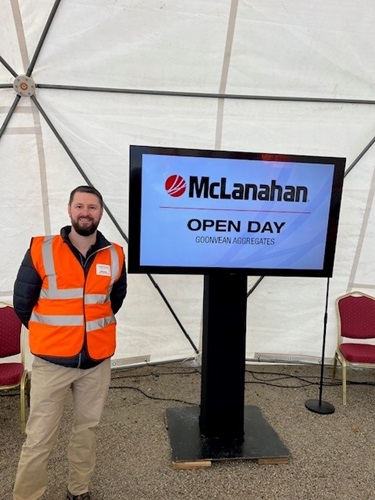
“In addition, the residue material they receive from Imerys is processed to recover a valuable sand product, again with a significantly reduced portion returned to Imerys as a waste product. The product that comes off the UltraSand can be sold directly, although they sometimes blend it in with other products.”
Hunter said McLanahan can draw on “decades upon decades of process engineering knowledge and experience.” He added: “It’s a real strength we bring to the UK and Europe. We’ve also got over 185 years of engineering experience. We’re renowned for being high quality, robust, and durable.”


